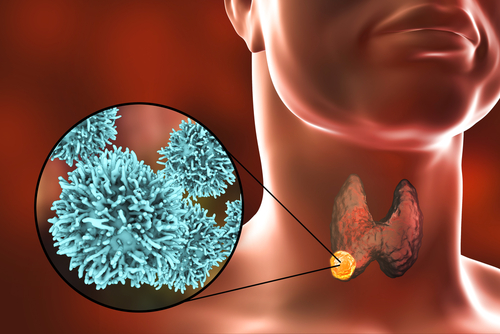Do You Know What Causes Thyroid Disorders?

Over 200 million people across the world are said to suffer from some form of thyroid disorder, and more than 50% of these continue to remain undiagnosed. Thyroid disorder are caused by over- or under-secretion of thyroid hormones triiodothyronine (T3) and thyroxine (T4).
Based on this, thyroid disorder are classified into two types.
Hyperthyroidism
Excessive production of either T4 or T3 (or both) by the thyroid gland can cause hyperthyroidism. Some common symptoms of this disorder include weight loss despite a good appetite, dizziness, shortness of breath, loss of consciousness, irregular heartbeat, enlargement of the neck, high blood pressure, increased sweating, frequent bowel movements, restlessness, and difficulty sleeping.
About 70% of hyperthyroidism cases are said to occur because of Graves’ disease. It is an autoimmune condition that causes the thyroid gland to produce too much hormone. It is more likely to affect women than men and usually runs in families.
Another reason for hyperthyroidism is goitre, which causes the formation of lumps in the thyroid gland, leading to excessive production of thyroid hormones. Inflammation of the thyroid gland, commonly known as thyroiditis, can cause this disorder.
Consuming too much iodine from food or medication can also cause overproduction of hormones. Women may develop hyperthyroidism during pregnancy or in the first year of giving birth.
Hypothyroidism
This disorder occurs when the body does not produce enough thyroid hormones. It is due to an underactive thyroid and commonly affects people over 60. Early symptoms of the disease include weight gain and fatigue, and most people dismiss these as a sign of growing old. Later stages of the disease may see muscle weakness, decreased sweating, elevated blood cholesterol, thinning hair, impaired memory, dry skin, and feeling cold.
One of the most common causes of hypothyroidism is Hashimoto’s disease, an autoimmune condition. It attacks the thyroid gland and causes inflammation, which results in underactivity of the thyroid gland.
The next most common cause is post-therapeutic hypothyroidism, i.e., past surgeries for goitre or radioactive therapy. If you have undergone radiation therapy due to cancer, it may have decreased the production of thyroid hormones in your body, causing hypothyroidism. Some medications can also lead to this disorder.
Though hypothyroidism is more common in middle and old age, infants can also suffer from it. In medical terms, this is called congenital hypothyroidism – babies are born with a defective or no thyroid gland. Many children suffer from an underdeveloped thyroid gland, which can be genetic or due to iodine deficiency. Although it’s difficult to detect any symptoms, it has been observed that babies with this disorder sleep more than normal. They also experience difficulty in feeding and suffer from constipation. Lack of timely treatment can result in intellectual disability and stunted growth.
Stuck in the daily rut of our lives, we often tend to ignore such symptoms. If you experience any of these symptoms on a regular basis, it’s time to sit up and take notice. A thyroid problem may well be responsible, so get a checkup done at the earliest.













